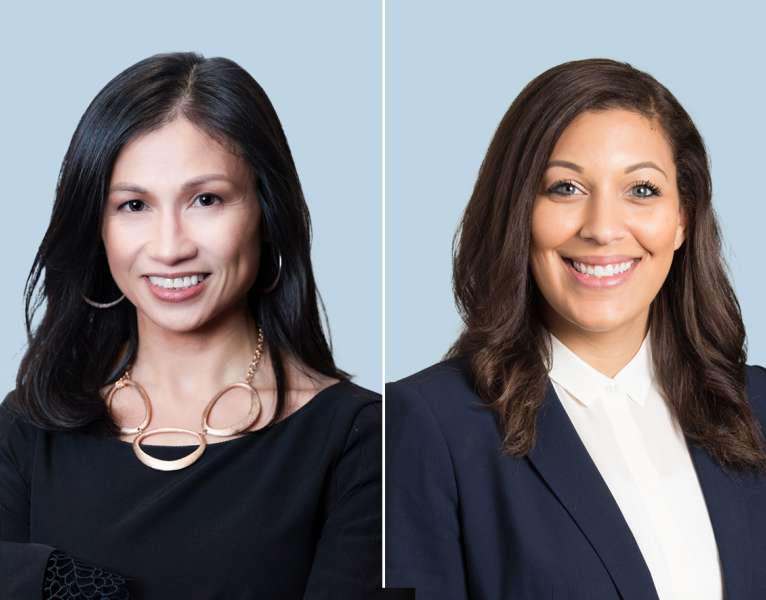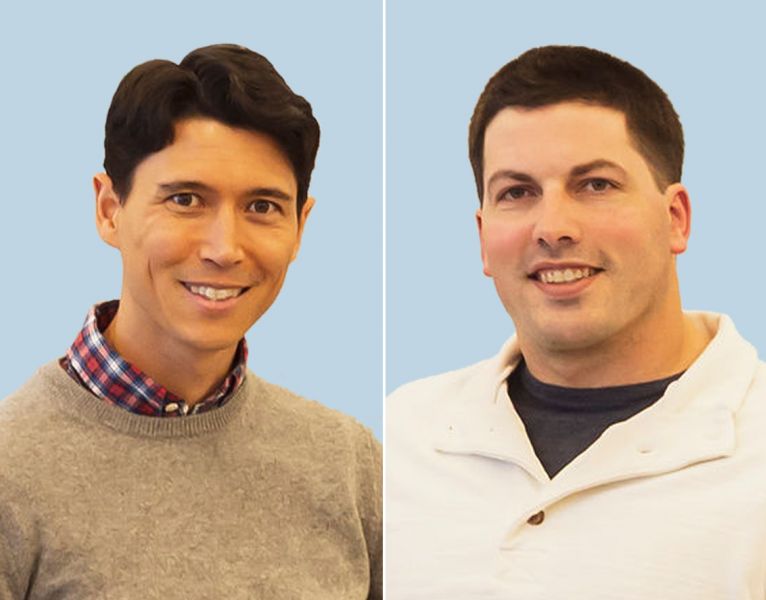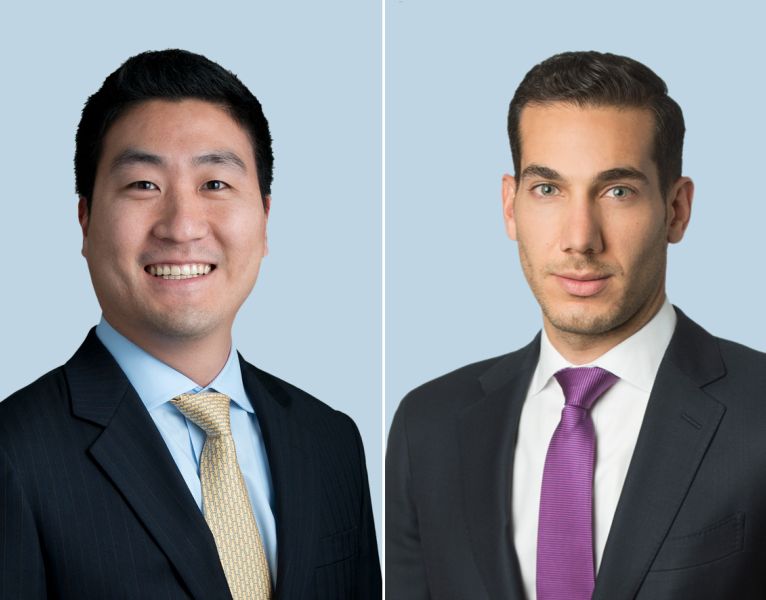In celebration of Black History Month, Proskauer’s Black Lawyer Affinity Group (BLAG) co-chair and corporate partner Sean Spence, spoke with Proskauer alum Ofei Kwafo-Akoto, head of legal at GLP Europe. Their conversation delves into the critical importance of celebrating the success of Black professionals, mentoring the next generation of Black lawyers, and the power of creating an environment of “belonging” to commit to long-lasting change in diversity.
Sean: What have you been up to since you left Proskauer in August 2018?
Ofei: When I left, it was to move in-house. I wouldn’t have left otherwise, as I really enjoyed working there. But I found my dream role at GLP where I am now head of legal for the European business. We currently manage six active funds with future fundraising to come. I manage the legal team and our relationships with external counsel, and I support the business on large-value transactions and projects within the European business.
Sean: It’s been great to watch you thrive at GLP. At Proskauer, you were in our mergers and acquisitions practice. How did that experience prepare you for your current role?
Ofei: At Proskauer I was advising on large, multi-million, sometimes billion-euro transactions, and was second in command within a team.
I wonder whether I’d have been fazed by the level of responsibility in my current role if I hadn’t had so much at Proskauer. I was also surrounded by high performing types, from colleagues to clients. That was inspiring for me in the sense of where I wanted to move in my career and was pushing myself. It also helped me get used to a consistent level of high performance. I am now fortunate enough to work with a really high-performing, talented legal team and my aim is to imbue them with a sense of empowerment that allows them to continue performing well for their own satisfaction.
Sean: We met at Proskauer through the firm’s Black Lawyer Affinity Group or BLAG. At that time, I was in our New York office, and you were in London. We were in different practices, different countries, and time zones. But we had this shared experience of being Black lawyers in Big Law. What did that experience of being a BLAG member mean to you?
“I felt really connected to others within the Firm because of BLAG specifically. I was the only Black lawyer within my team. Having that sort of camaraderie and connection with other Proskauer lawyers is great. It took me by surprise, the extent to which the Firm supported that connection.”
Ofei Kwafo-Akoto, Head of Legal, GLP Europe
Ofei: It was nice to be somewhere where it’s formally facilitated—encouraging us to speak across the ocean and to meet each other in person. It was the first time that I was sharing perspectives of what it’s like to work within a corporate environment as a Black lawyer with others who weren’t just in the same profession but the same firm. You can really share experiences, and you’re speaking to people who have quite like-minded perspectives. That was reassuring and enjoyable.
There was a lot of banter in BLAG. It’s characterized by individuals who are high performing, but also have a good attitude, good sense of humor and a positive, constructive approach to things.
Sean: You joined Proskauer’s London office as a lateral associate and at that time, our London office was much smaller than it is today. Did being a member of BLAG help you navigate joining a large U.S. firm from a smaller non-U.S. office?
Ofei: I felt really connected to others within the Firm because of BLAG specifically. I was the only Black lawyer within my team. Having that sort of camaraderie and connection with other Proskauer lawyers is great. It took me by surprise, the extent to which the Firm supported that connection. I was made aware that there was a BLAG retreat being planned in the States, and I made the request to join. In some firms, the answer might well have been a no, and wait and see until the numbers increase in London and have your own gathering there. But the answer was an immediate yes, you are considered part of the Black lawyers at Proskauer. And if they’re having a retreat, you are joining.
There are other BLAG lawyers that I still keep in touch with to this day. I think that shows the power and the strength of the connections it made.
Sean: I remember that retreat very well. It was the first time I met you in person. All the Black lawyers at Proskauer gathered at the Chicago home of Nigel Telman, a Labor and Employment partner and the head of our Chicago office. What are your memories of that retreat?
Ofei: It’s one of those things; on reflection, you realize how generous he was. Inviting people who aren’t in your direct team, inviting some chap from London to come over to your home, it’s quite something in a professional context.
But Nigel did that with open arms. He and his wife Deborah were extremely welcoming and inspiring. They’re achieving great things professionally. And it was great to see that level of excellence.
Sean: Now that I am also in London, it was great to reminisce about that BLAG retreat when we recently met up at a pub. The retreat is clearly an experience that still connects us today. We had everyone from our summer associate-interns to junior associates, to senior associates, to the Black partners all in one house, along with Black clients and acquaintances of Nigel.
To see the trajectory of a Black lawyer from a junior intern up to a successful Black partner in one room was just a great sight to behold. The impact of that day really aligns so well with the Firm’s Black History Month theme this year, “Celebrating Black Success.” And I’m curious, though it’s a US celebration, how are you thinking about ensuring the success of Black lawyers and other folks from under-represented groups and diversity more generally in your current role?
Ofei: GLP takes a very holistic approach to diversity. As a business, we’ve looked at it from a ground-up perspective, at all levels of seniority, and different functions within the business. How do we recruit individuals? And what are the systems and processes there? And what are the potential blind spots? How do we retain them?
On a regular basis, we look at both how we are monitoring where we are, but also monitoring people’s experience. It’s both quantitative and qualitative.
GLP has called on diverse individuals, including myself, to feed into their diversity strategy. They’re taking their time with diversity issues; it’s not about quick fixes now or virtue signaling, it’s about working out, long-term, what will produce good fruit in terms of a diverse, happy group of colleagues.
Sean: I love that. I was able to experience my first UK Black History Month last October, and it was funny, but also sad, how similar it was to U.S. Black History Month in terms of assessing where Black lawyers are right now (especially upon learning the alarmingly low number of Black lawyers represented at the senior level in both countries). But as we think about the path forward, how do we inspire the next generation of Black lawyers to believe that they can be a Black head of legal or a Black partner, and that it’s a place where they belong?
“Highlighting the stories of Black lawyers who are succeeding today makes all the difference in inspiring (and increasing the amount of) Black lawyers who will succeed tomorrow … it’s equally important for upcoming Black lawyers to seek our mentors and sponsors regardless of their race.”
Sean Spence, Partner, Proskauer
Ofei: One of the most powerful things in addition to action, is communication. That is why this conversation is so important. I don’t know what your experience was when you were coming up as a young aspiring lawyer. For me, it was if you don’t see it, you don’t think you can be it.
Doing things that highlight the success of other Black professionals is key for the next generation, because the aim is that they should surpass whatever it is that you and I achieve. We should be doing it for their benefit. It’s never about us.
The success that I’ve achieved to date has been a combination of support from Black mentors and sponsors, but also numerous allies. Someone who’s been instrumental in my professional career is Rob Day, a partner in Proskauer’s London office. He’s been instrumental before I was at Proskauer, during my time at Proskauer, and since I’ve moved in-house. It’s about people like Rob and countless others who just want to support those who are coming up, regardless of where they’re from. They reach out, make themselves available, and they don’t just mentor you, they use their power and influence to actively sponsor you.
Sean: I agree. Highlighting the stories of Black lawyers who are succeeding today makes all the difference in inspiring (and increasing the amount of) Black lawyers who will succeed tomorrow.
And as you’ve touched on, it’s equally important for upcoming Black lawyers to seek our mentors and sponsors regardless of their race. My sponsors look nothing like me, but they’ve been instrumental in advancing my career.
Ofei: Right. It is also key to work for organizations where you have sponsorship, or support from people who are senior, as that’s where you get that real gearshift. Because there’s a limit to what people can do when they don’t hold that level of influence within a business. What I’ve seen at Proskauer and now at GLP is that it’s those key stakeholders who have decision-making ability, and who think about issues and are actively doing something about it that makes the difference.
When it comes to making a difference, it is also important that we as lawyers think about the wider world beyond our immediate places of work. I’m a trustee of a youth charity called the Duke of Edinburgh Award, which helps young people develop life skills before they start in the world of work. It gives them access to new opportunities and experiences and helps them connect with their local communities. When you get those foundations right, as those people grow and develop, in terms of their mindset, their outlook, their approach to things, you just get a more collaborative, cohesive, constructive society.
I also sit as a non-exec director for a housing association. Housing in the UK is a major issue. I think the ability to leverage and use legal skills and commercial skills within the real estate industry, for the benefit of a group of people who are sometimes underserved, is really rewarding.
I’d encourage whoever reads this, whether you’re in private practice or in-house, as lawyers you have skills and insights that you’ve gained throughout your career, so don’t be afraid to leverage them in a way that doesn’t seem quite as linear.
Sean: I love that you are so focused on youth. Sometimes these conversations on improving diversity focus solely on law students to the detriment of the next generation. It’s so important that we start building the foundations for our youth now, and so we need people like you to inspire Black kids who may not be about to join law school but have it in their mind as something they can aspire to at a very early age. We also need to invest in them so that we can build a pipeline that will last for generations.





